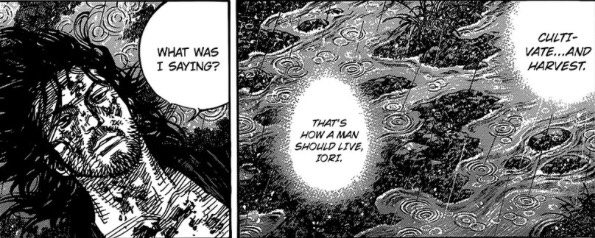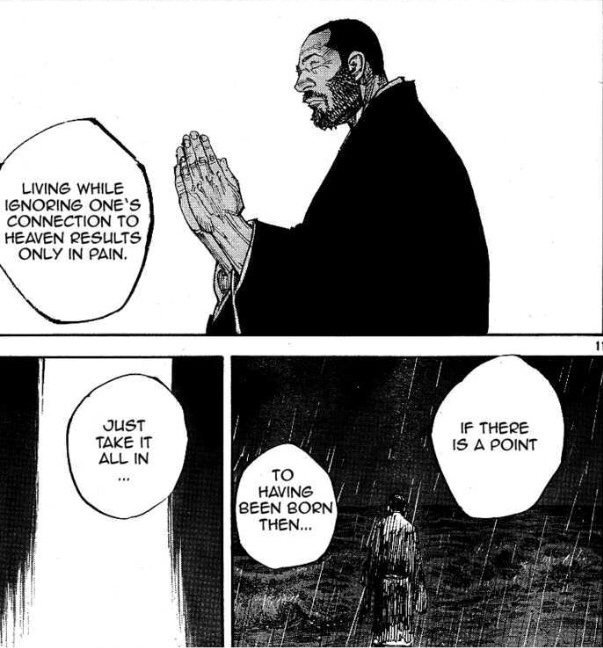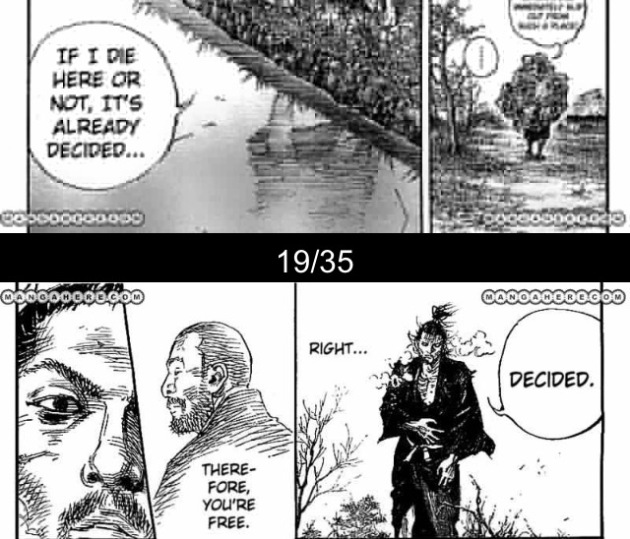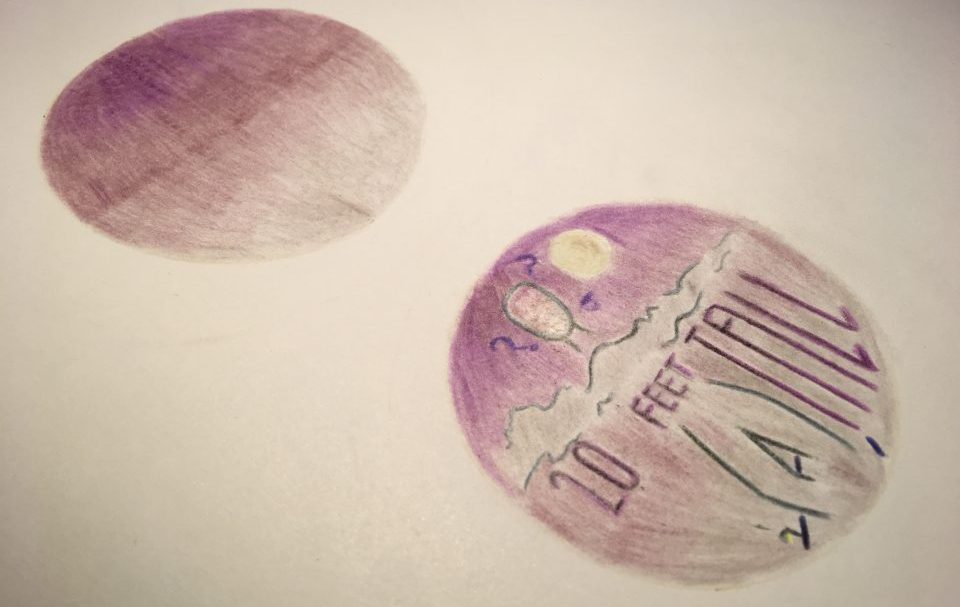Welcome back philosophers! This week we are steering away from matters of the soul and exploring the existential realm of the absurd.

It is said that destiny is a series of detours to which, at every corner, we are posed with the possibility of growing or declining. As per my intro post, life is a cycle of peaks and troughs which pose as opportunities for study and mastership or periods for cultivation and harvest ( if you haven’t already read the intro, do dat). In other words the storms of life can either be moments that are overcome and mastered or sat in perpetuating stagnation.

Madness can be described as doing the same thing over and over again and expecting a different result, interestingly this is essentially the basis of absurdism. Absurdism was famously coined and explored by philosopher Albert Camus. Camus believed that life was absurd in that the effort exerted in life was futile as it was a fruitless repetition with little to no meaning. This is alike the nihilistic view that there is no meaning to life, although nihilists such as Nietzsche believed that meaning could be given to life through the embracing of illusion.
** cue existential crisis #whoa #there #worsdemeaningofdisjackie
Now the question that often baffles philosophers and that many religions have offered explanations to is the meaning of life. Why are we here ? Where did we come from ? To which many other key philosophical questions spring forth such as: What/ whom is responsible for the genesis of life ? Is there a God ? Why is there suffering ?
Many of the philosophers we study today such as Nietzsche, Sartre and Kierkegaard were all concerned with this facet of philosophy. It could be described as the ultimate question as far as philosophy pertaining to mankind. Albert Camus’ Myth of Sisyphus explores the absurdism of life in his depiction of the tedious task Sisyphus is plagued with, but it also causes us to probe into the elusive concept of happiness.
The Myth of Sisyphus
Sisyphus’ tale is the tale (and a tragic tale at that) of a man and the ceaseless punishment placed upon him. Sisyphus must roll a boulder up a steep hill and once reaching the top, the boulder topples down the hill and the task begins again. Now many of us would agree this task is essentially just a big bother and to what end ?
Aha! You have just stumbled across the question underlying the principle idea of absurdism.
What is the point ?
The myth of Sisyphus is used as an allegory for the suggested futility of life, that is the upwards struggle only to be thrown mercilessly back down to repeat the process again. Camus also contemplated the philosophical problem of suicide and whether that was the only rational solution in response to a meaningless existence. Sooo I guess we can assume Camus wasn’t an optimist, am I right ?

The futility of the task in question is quite evident as there seems to be no progression whatsoever. However, is growth or progression a requisite for meaning or purposefulness ? Or is there intrinsic value in the task itself, alluding that the task is meaningful irrespective of the subjects growth or advancement ? If we were to follow such an argument, it would suggest existence is valuable notwithstanding human life. Therefore if our existence is of no consequence, is there a meaning to life ? This enters the realm of purpose and again I will reiterate purpose doesn’t necessarily have to be a divine mission placed upon us by a higher immutable being. Does our existence have to be validated by a cause greater than us or is the value of our life extrinsic – augmented by our individual endeavours. Is there value in just being ?
Sisyphus is portrayed as the absurd hero in this tragedy, to which at the end of the myth, we are told to consider Sisyphus happy. The myth can be considered tragic, principally because the protagonist is conscious of the futility of the task and is somewhat powerless to choose/do otherwise. Camus’ solution to this existential problem was to accept the absurdity of life rather than finding solace in the illusions of art or religion. Through the acceptance of the vanity of life, an individual is able to willingly push the boulder up the hill even after it has rolled down.

“ Do not weep, do not wax indignant – understand “ – Baruch Spinoza
Religion and Illusion
Friedrich Nietzsche, (a nihilist philosopher) assuaged that although life is meaningless – through the embracing of illusion, life is given the appearance of being beautiful. By therefore delighting in illusion, we are then able to live life with much less of an existential burden. The existence of God is often attributed to the source of life’s meaning to which in the event that there is no God, we again face the looming search for meaningfulness. The argument of pain and suffering is often used as a counter against the existence of God as it conflicts characteristics such as omni-benevolence and omnipotence. If we are to take a quick detour into the characteristics of God, omnipotence in the argument of suffering does not concur that God doesn’t possess the power but rather God has autonomy over when and when not to use it. Religion is another ‘illusion’ that is thought to act as comfort that solace resides in a higher being and in the case of Christianity – the reward of salvation and heaven.
Freewill and determinism
For those who follow the idea of God existing, the characteristic of omnipotence is once again brought into the picture. Despite the subjectivity of the meaning of life amongst mankind, those who pursue life fervently are rewarded with experiences and growth. An example is Gon and Killua in HxH , despite being warned to stay on the island and continue the family profession respectively, they exercised freewill, escaped the banalities of others expectations and forged their own paths.
Back to poor Sisyphyus. Let’s consider how Sisyphus may have felt in his descent after the boulder had tumbled to the bottom of the hill. Is Sisyphus content ? Frustrated or Happy ? Camus urges the readers to consider Sisyphus happy, as Sisyphus is a symbol of the everyman. As despite the toil and tumbling of the boulder we ceaselessly push on through life trying to achieve something or other which objectively may be meaningless but nonetheless brings us fulfillment.
Considering the stance that we may be determined, can we be truly happy ?
If we are determined, then our actions ultimately aren’t consciously our own therefore the concept of freewill cannot exist. But if we were to consider freewill, it alludes to total control over own lives barring divine intervention. There exists soft and hard determinism:
Soft determinism: We are for the most part free but limited by finite choices and predispositions
e.g Driving on a one way road that turns into a junction, we have only two choices which are finite therefore limiting us to the outcomes either on the right or left
Hard determinism: We are not free and all our decisions are predetermined, therefore every preceding action ensured the choices you make at any point thereafter.
* consider the above example, but there is a roadblock on the left, so the only choice is to turn right
**Determinism is definitely a more complex concept with the accumulation of preceding actions leading to a finite single ‘choice’ but I hope you see where I’m going with this!

Happiness
I would put forth that human beings are both marvellous and horrible in many facets but our ability to create is quintessential. Creation whether born from ingenuity or imagination is almost godlike in its ability to bring forth something from apparent nothingness. The arts are neither born from necessity such as food and water but rather expression and pleasure. Aristotle spoke of the state of eudaemonia which is best translated as “ human flourishing”. If we are to consider a society where the acquisition of money and property is of no consequence, what would humans occupy themselves with ? To which Aristotle believed the arts 🎭 would be a means of gaining fulfilment, man no longer being concerned with work and money would delve into the arts bringing about happiness.
Happiness can also be found in our connections with others whether that be platonic, familial or romantic. Perhaps the shared condition of existence and the awareness that life is finite makes these connections even moreseo meaningful. In the case of Takezo and Otsu, we the readers ( well me anyway ) hopefully await their reconciliation being all too aware of how short life is.
“Man is by nature, a social animal” – Aristotle
The concept of time, although rather dreary pertaining to the mundane tasks, can be considered linear. Now to the immutable, time is a space in which past, present and future as described by Sufi poet Halik Gibran are undivided and paceless. Time, to mankind may appear linear regarding the advancement of the human race and the finite lives we have been bestowed with.
The meaning of life is subjective as we all prescribe to one ‘illusion’ or another, to which I say life regardless of an objective meaning or lack thereof ideally should be lived fully. Happiness can be found in so many things, of which the majority are obtained through seasons of cultivation and harvest. Finally through our ceaseless navigation of life (the ascent and descent) we add value albeit extrinsic or otherwise.
* a note to all my creatives: creativity is divine, keep pushing!
“The way I see it some are born to incite, some to write and others to fight” – a soft lavender
‘Ave a gander
The Myth of Sisyphus Albert Camus
Being and Nothingness Jean-Paul Sartre
Vagabond Takehiko Inoue
For your listening pleasure:
Transform Daniel Caesar
This test is your storm T.D Jakes
Deep Iman Omari
Heaven for the Sinner Bonobo ft. Erykah Badu
Higher Calling Big KRIT ft. Jill Scott
Happy Wretch 32
